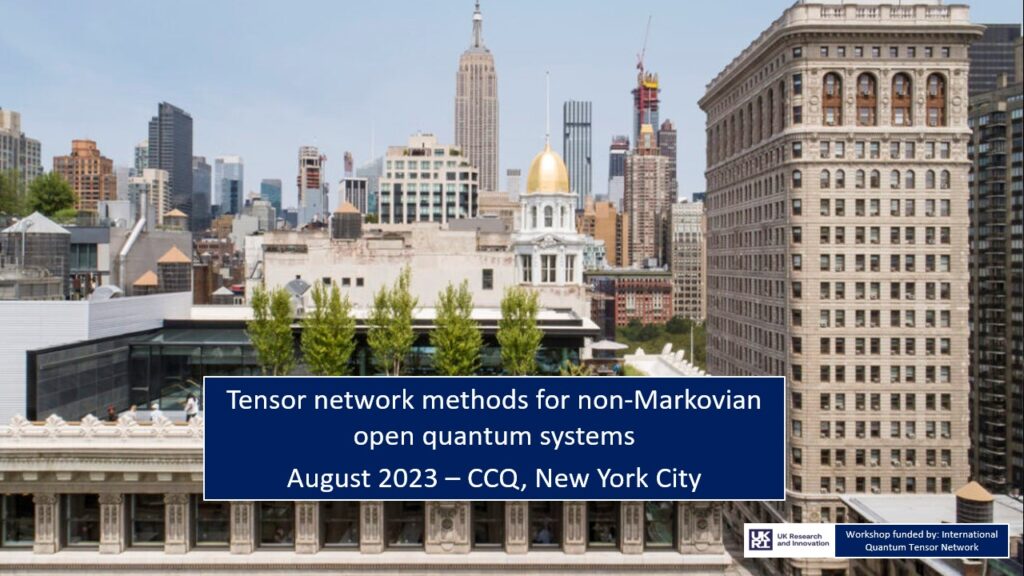
Dates: 13-15 September 2023
Venue: CCQ, New York City
Understanding future quantum technologies requires understanding complex quantum systems coupled to real-world environments. Until recently, the standard approaches used in physics to model such “open” quantum systems have been severely limited, considering only dissipation which can be described through time-local processes, and where it is assumed that dissipation on separate degrees of freedom can just be added together. While such approaches have been successful for quantum optics, the approximations and simplifications that are used do not generalize.
While some numerical methods for realistic environments have been explored in quantum chemistry, these were typically still limited to environments where the memory time was small, or where particular assumptions hold. However, in the last decade, several new methods have been developed. In particular, methods exploiting the potential of tensor networks have revealed how to compress the information required to simulate such systems. These have allowed modelling of open quantum systems with complex structured environments, enabled modelling of extended systems with many degrees of freedom, and are just now approaching exploring many-body physics in realistic open quantum systems.
The goal of this meeting is to bring together the groups who have developed these different methods, to compare them, to understand whether there might be yet better approaches to this problem, and to identify the challenges and goals for future work in this area.
Workshop Organisers
Jonathan Keeling, St. Andrews
Miles Stoudenmire, CCQ